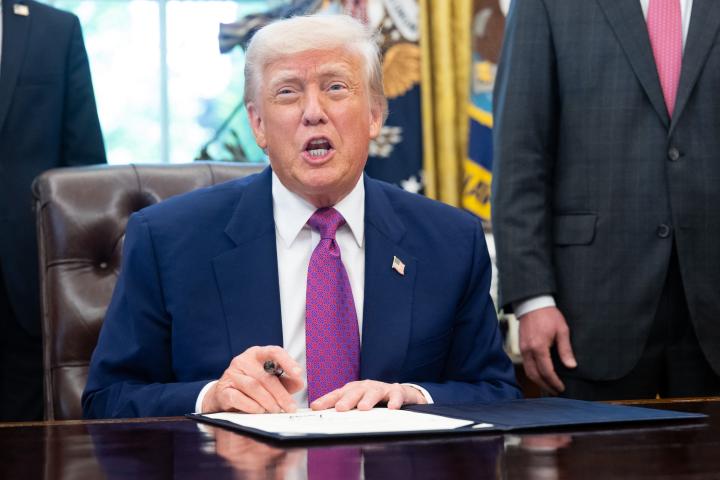President Donald Trump announced plans to sign an executive order Monday morning that he says will dramatically slash prescription drug prices across the United States, a move he declared would bring “FAIRNESS TO AMERICA!”
In a fiery Truth Social post on Sunday night, Trump unveiled the cornerstone of his plan: a “Most Favored Nation” pricing policy that would force pharmaceutical companies to offer the U.S. the same prices they charge the lowest-paying countries in the world. According to Trump, this would reduce drug costs “almost immediately.”
“I will be instituting a MOST FAVORED NATION’S POLICY whereby the United States will pay the same price as the Nation that pays the lowest price anywhere in the World,” he wrote, calling the high cost of drugs in the U.S. “very embarrassing” and “difficult to explain.”
The United States currently spends around $400 billion annually on prescription drugs, often two to three times more than what other wealthy nations pay for the same medications, sometimes produced in the exact same labs by the same companies.
While Trump didn’t provide detailed policy specifications in his post, he promised that all would be revealed in the official executive order to be signed Monday. He described the move as “one of the most important and impactful” announcements of his political career.
This isn’t the first time Trump has attempted to tackle the pharmaceutical industry’s pricing model. A similar policy proposal was introduced during his first term in office, but it was ultimately blocked in federal court and later scrapped by the Biden administration. At the time, the courts ruled that Medicare lacked authority to negotiate drug prices.
That legal hurdle was cleared in 2022 with the passage of the Inflation Reduction Act, which granted Medicare the power to bargain over prices, albeit for a limited number of high-cost drugs.
Trump’s original 2020 proposal would have linked what Medicare pays for drugs administered in doctors’ offices to the lowest price paid by countries in a peer group of economically advanced nations. It was projected to save the government $85 billion over seven years but faced sharp criticism from the pharmaceutical industry, which argued it could lead to limited access to certain medications.
Health experts warn that a rebooted version of the policy could carry similar risks, depending on how it’s structured. Critics say aggressive price caps might prompt drug manufacturers to pull certain drugs from the U.S. market or reduce research and development investment.
Still, Trump’s move is expected to reignite fierce debate on the rising cost of medicine, a perennial issue for American voters and a potential rallying point for Trump as he pushes ahead with his campaign.
The pharmaceutical industry is widely expected to challenge the policy in court and lobby hard against its implementation, setting the stage for a major battle over drug pricing in the months ahead.



